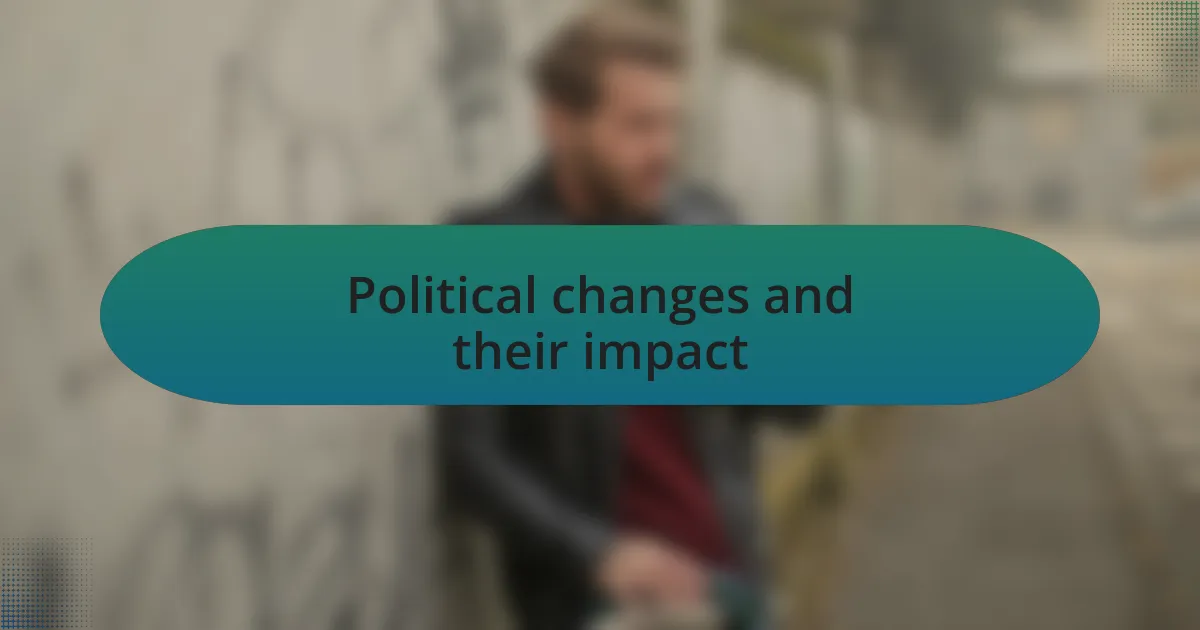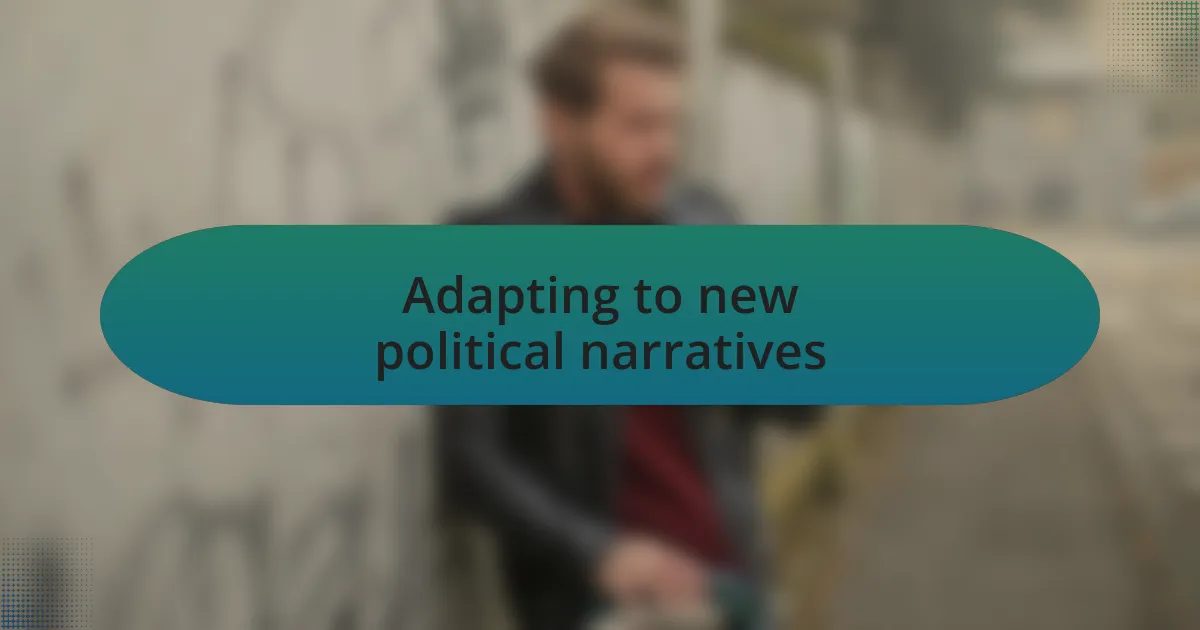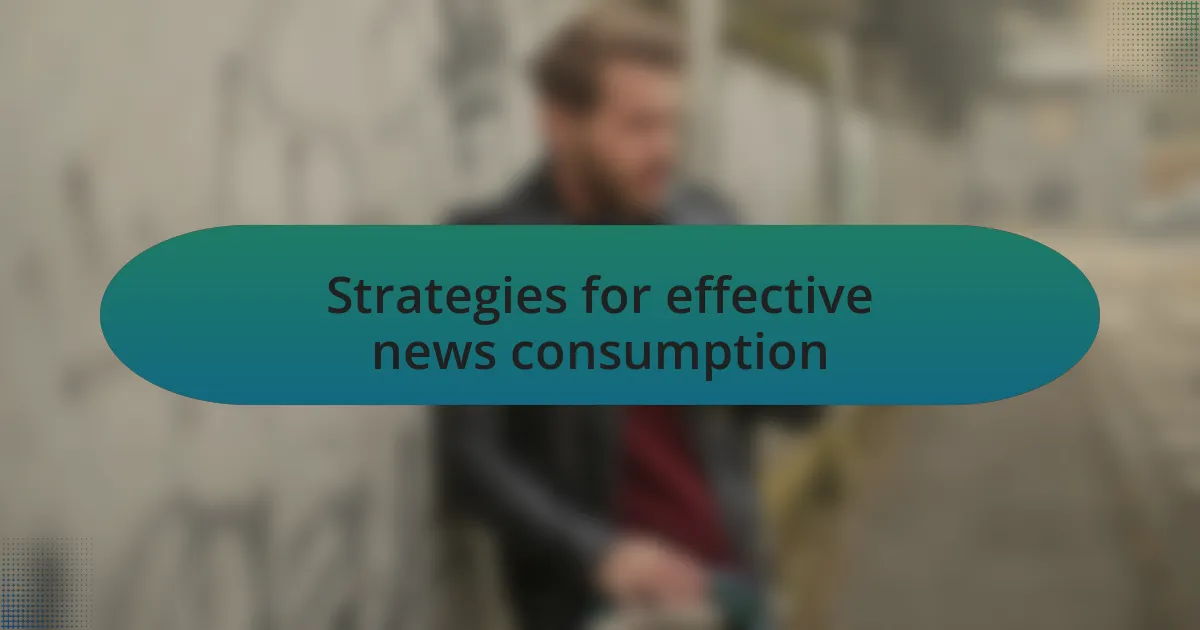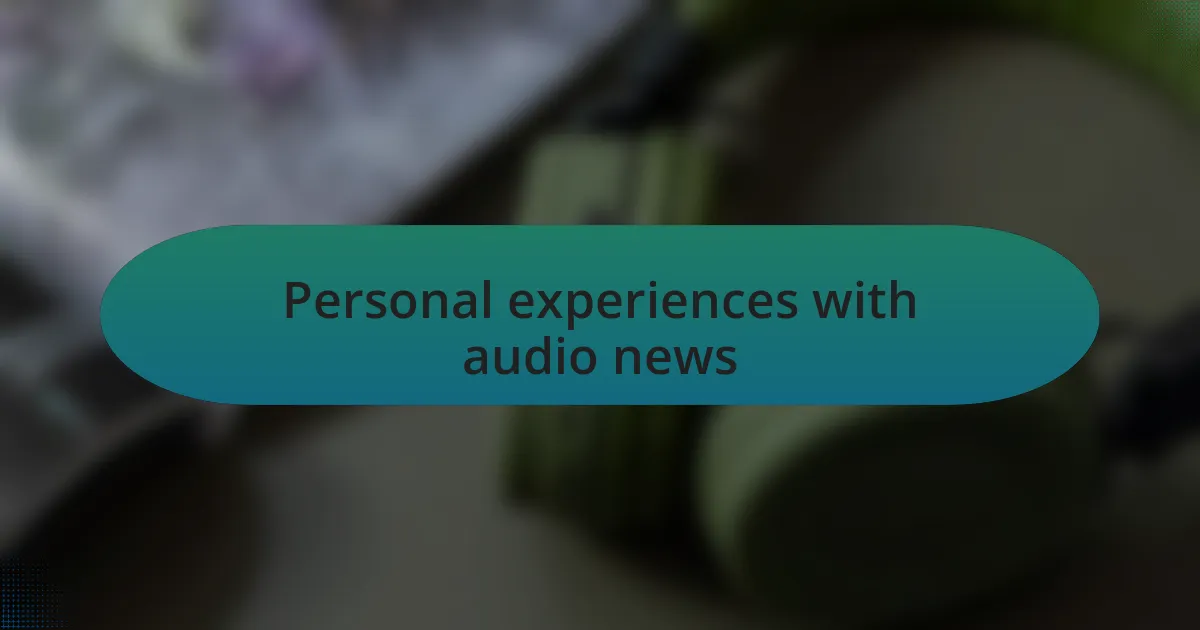Key takeaways:
- Political changes influence personal beliefs and relationships, prompting deeper reflections on values.
- Adapting to new political narratives requires open-mindedness and critical engagement with diverse information sources.
- Audio news fosters connection and empathy, transforming consumption of current events into a more engaging experience.
- The future of audio news may be shaped by AI and personalized content, enhancing user engagement and inclusivity in storytelling.

Political changes and their impact
Political changes can feel like a ripple effect in our daily lives. I vividly recall the sense of uncertainty I experienced during a significant election cycle. It left me questioning how my own views aligned with the shifting narratives around me. How do you think political shifts affect your perspective?
When the government announced sweeping reforms, it was as if the very foundation of my community was shaken. Friends and family shared mixed feelings, some hopeful and others anxious. I found myself in countless discussions, weighing the pros and cons of these changes, realizing that they always influence us, whether we are directly involved or not.
Looking back, I notice that political shifts not only change policies but also reshape our conversations and relationships. This realization hit home during a heated debate with a longtime friend. We both had to confront how our perspectives had evolved, highlighting that in the face of change, our values and connections may deepen or even strain. Have you had a similar experience where political dynamics transformed your relationships?

Adapting to new political narratives
Adapting to new political narratives often feels like learning a new language. I remember sitting around the dinner table with my family, where our conversations shifted dramatically as new policies emerged. What once felt like straightforward discussions turned into complex dialogues about values, ethics, and the direction of our country. Hasn’t it been fascinating to see how quickly our language and the way we express our opinions evolve during these times?
As I navigated these new narratives, I often found myself reflecting on my own beliefs. For instance, during a community town hall meeting, I encountered individuals from different backgrounds sharing their stories and fears about the changes we were facing. Hearing their perspectives made me rethink my stance and realize that political changes aren’t just abstract concepts; they’re personal experiences that shape our lived realities. How do you approach conversations that challenge your views?
In this ever-changing landscape, I learned the importance of staying informed and open-minded. One evening, I decided to give a podcast focused on political analysis a chance. At first, I felt overwhelmed by the unfamiliar viewpoints presented, but engaging with this new information allowed me to adapt and see the bigger picture. Have you ever found that stepping out of your comfort zone, perhaps through different media, has transformed your understanding of a political issue?

Strategies for effective news consumption
When it comes to effective news consumption, diversifying your sources is key. I remember when I subscribed to various news podcasts, which opened up my understanding of multiple viewpoints. Hearing different opinions not only enriched my knowledge but also challenged my preconceived notions—when was the last time you sought out a source that opposed your viewpoint?
Another strategy I found invaluable is setting specific times for news consumption. Early on, I realized that mindlessly scrolling through social media only added to my anxiety. By designating a few minutes in the morning and evening to catch up on the news, I felt more in control and less overwhelmed by the constant flow of information. How often do you feel bombarded by news, and how could a structured approach help alleviate that pressure?
Lastly, I began practicing critical thinking when absorbing news. This means not just accepting headlines at face value but digging deeper into the content and context. For instance, a headline may evoke anger or fear, but I’ve learned to ask myself, “What’s the larger story?” This shift has drastically changed how I engage with news, allowing me to approach challenging topics with a sense of curiosity rather than fear. Isn’t it empowering to filter through information with a discerning eye?

Personal experiences with audio news
When I first dived into the world of audio news, I felt an instant connection. Listening to a political podcast while commuting transformed my mundane travel time into an enriching experience. It often made me ponder, have you ever found a medium that resonates so deeply with you that you forget the noise around you?
One particular moment stands out. I was halfway through an episode discussing a recent political shift when the host shared a personal story of standing up for their beliefs. It struck a chord with me, reminding me of my own experiences during a heated local election. That emotional resonance made me realize how powerful audio stories can be in fostering empathy—do you remember a time when a story changed your perspective on an issue?
Incorporating audio news into my routine has profoundly influenced my approach to current events. I find myself more engaged and less anxious, as the intimate nature of hearing someone’s voice conveys urgency and authenticity. Have you noticed how a compelling narrative can reshape our understanding? For me, it’s clear: audio news isn’t just about information; it’s about connection and shared experiences.

Future of audio news aggregation
As I look ahead, the future of audio news aggregation appears to be bright and innovative. With advancements in artificial intelligence, personalized audio feeds could become the norm, tailoring content to our unique preferences. Have you ever wondered how much more engaged we’d be if the news we listened to felt custom-made just for us?
I can already imagine a world where voice recognition technology allows seamless interaction with audio news applications. Picture this: you could simply ask your device to summarize the key political events of the day, and it would deliver insights in a way that feels like a conversation with a knowledgeable friend. Doesn’t that sound like a game-changer for staying informed?
Moreover, the push for inclusivity in media can redefine how we consume news. By incorporating diverse voices and perspectives, we may not only gain a wider understanding of issues but also forge deeper connections with the narratives shared. How do you think this shift in representation could alter the landscape of political discourse? From my perspective, embracing varied storytelling styles can engender empathy and spark crucial conversations among listeners.